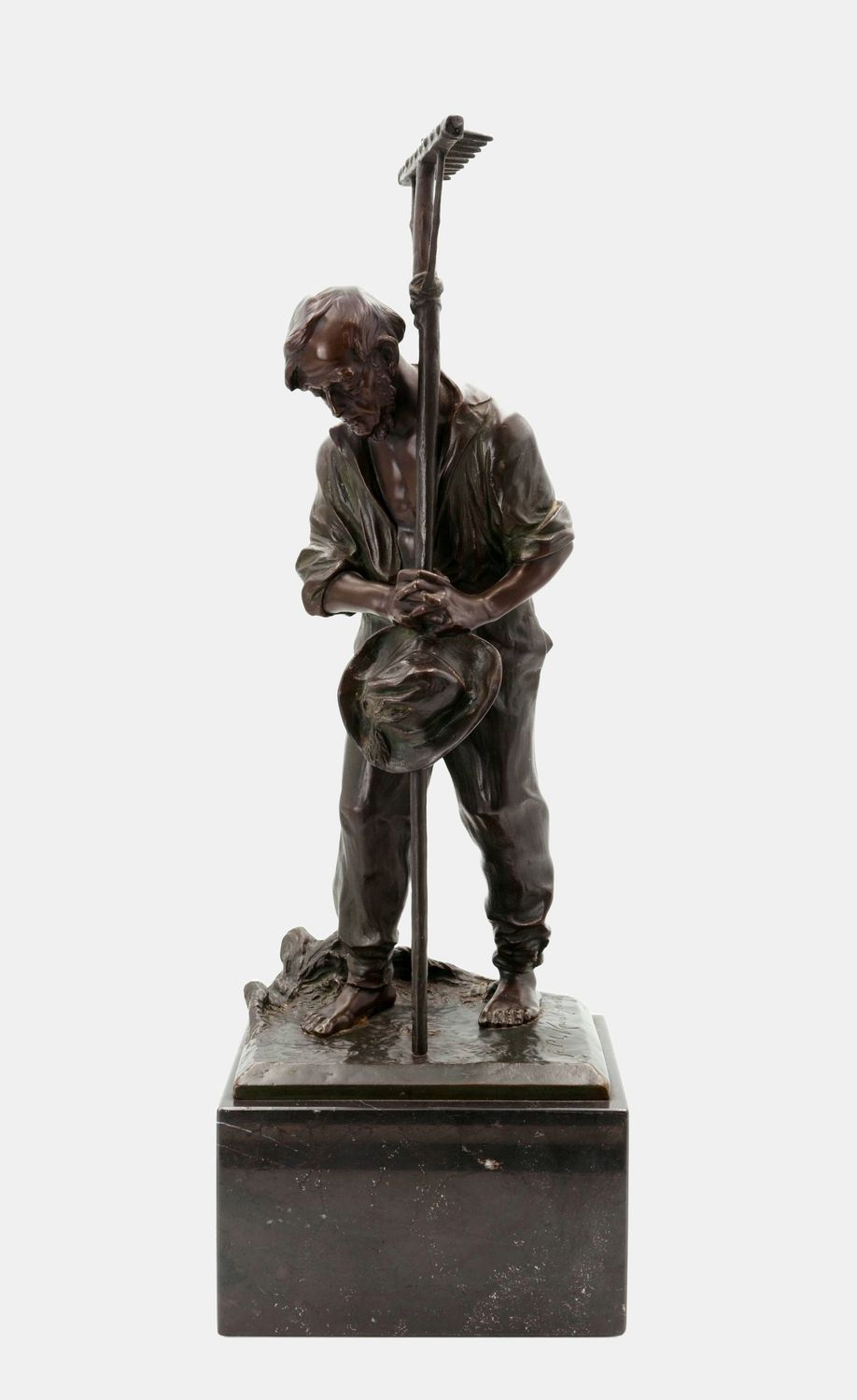Kowalczewski, Paul Ludwig (1865-1910), Field worker with rake, c. 1900
Paul Ludwig Kowalczewski(1865 Mieltschin - 1910 Berlin), Field worker with rake , around 1900. Brown and brown-greenish patinated bronze with cast naturalistic plinth mounted on a white veined marble base (10 cm high), total height 50 cm. Dimensions of the bronze: 40 cm (height), x 16 cm (width) x 13 cm (depth), weight 10.8 kg. Signed “P.[aul] L.[udwig] Kowalczewski.” on the plinth and also with the abbreviation “fc. [fecit]” as the work of the artist.
- Slightly rubbed and minimally stained in places, overall in excellent condition for its age
- The Humility of the Farm Worker -
Paul Ludwig Kowalczewski, who himself grew up in a rural region of Poznan, elevated the field worker to an independent pictorial subject. However, not as a new hero of the time, as the metalworker in particular was portrayed as an agent of progress, but as a humble older man. Having finished his work, as indicated by the pedestal, the barefoot worker has taken off his hat to say a prayer bareheaded. He leans on his tool, a simple rake. Just as the Bible says after the expulsion from paradise, he has worked by the sweat of his brow throughout the advanced years of his life. A burden you can see on his hunched back.
He may have prayed the Lord's Prayer with his eyes half closed, reaching the line "Give us this day our daily bread". A thanksgiving for the daily bread, which the field worker helps to produce, and at the same time a plea for the nourishment of the soul, for man does not live by bread alone.
About the artist
Paul Ludwig Kowalczewski studied sculpture at the Berlin Academy of Arts from 1895 to 1898. From 1899 to 1906, the artist, who died at the age of 45, exhibited salon bronzes and life-size busts at the Great Berlin Art Exhibition. Kowalczewski was one of the first artists to depict workers and peasants in bronze.

